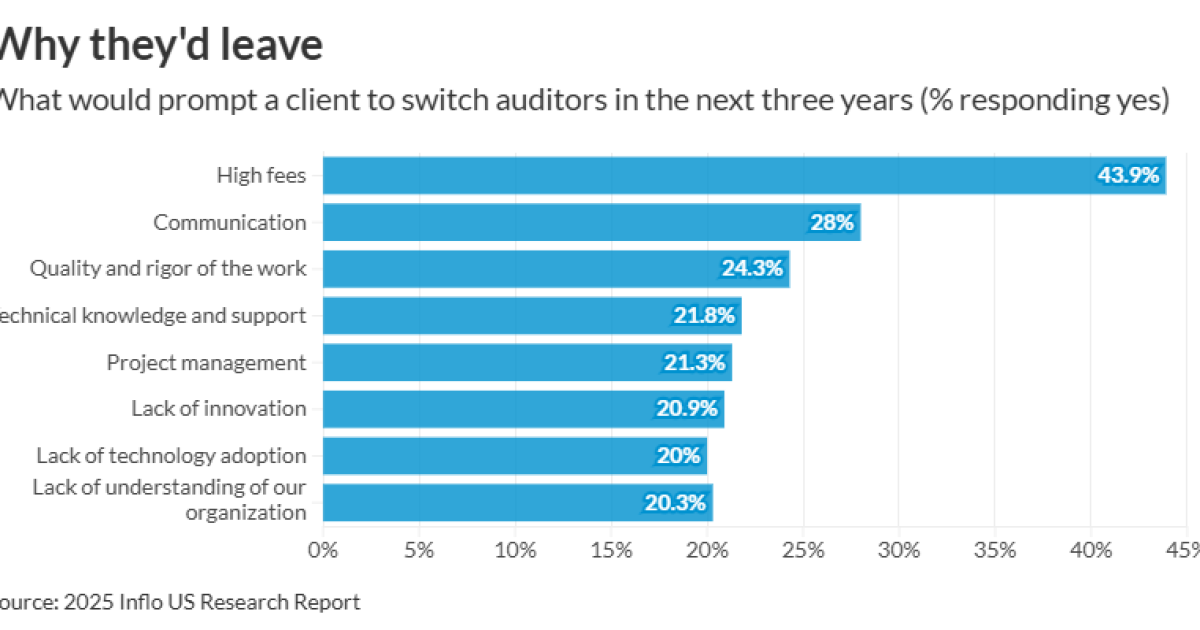There is no easy way to start this topic other than to hit it hard from the gate: Internal succession strategies for every firm have been broken due to outside investment. The infusion of private equity funding has created a tsunami impacting not just the financial value of a firm but also disrupting emotional decisions.
Most firms of several million dollars or more are being forced to leave significant cash on the table if they opt to conduct an internal succession. Before some of you get upset by this statement, sit back and look at the reality of our environment. Outside investment has disrupted a century of how things have always been done, and it might not sit well with the stated direction of many firms. The math is simple, but emotional elements are complicated.
Before the math, let’s review the emotional side. There is a significant history of tradition and conservative thinking in accounting. This is natural because the accounting profession needs to be conservative to ensure the integrity of their decisions is accurate. However, the tradition and conservative thinking are now clashing with the increased values in today’s market and are often misaligned with the younger professionals’ desire to not wait 30 years to get incentives and buyouts.
Let’s go through the math: The buy-out in most firms is based on a deferred compensation or a like-kind equity buy-back process. In a traditional deferred compensation model, the retiring partner’s buy-out is often the average of their last five years’ income, less the high and the low, multiplied by 2.5 to 3.5 times and paid over 10 years. For example, if their average income was $500,000 x a multiple of 3 equals $1,500,000 or $150,000 per year for 10 years.
Another option is taking the average firm revenue for the last few years and multiplying that by the percentage of the partner’s equity. As an example, if the average revenue is $10,000,000, and the partner owns 25%, they are paid $2,500,000 over 10 years. A twist is that many partnership agreements add a discount to the buyout using a .80 to .90 multiple. The $2,500,000 at .80 is now $2,000,000 or $500,000 less. Some cap the buyout amount.
This is where the discount creeps in. The $10,000,000 firm with the .80 or .90 value is selling internally at $8,000,000 to $9,000,000 or at 1x its value is $10,000,000. That same firm, in today’s market, would likely get a higher value. We hate to quote values because values range greatly by firm, but let’s use a conservative 1.2x multiple. Value calculations are no longer based on a multiple of revenue, but we are keeping this simple.
A financial illustration of an internal succession or traditional firm buyout translates to a significant reduction in value for exiting partners. Even the smallest gap from the 1.0x revenue to 1.2x on a $10,000,000 firm with a 25% owner is $500,000 less. Now, add in the time value impact. The 1.2x model will have cash up front and a shorter payment for the balance of a few years instead of 10 years and the 1.2x may be a low estimate for a $10,000,000 firm in a great location. Also, for simplicity we are ignoring the potential impact of rolled equity if you go the private equity route. (Just trying to keep this simple.)
The changing competitive landscape in accounting
Temporarily suspend any personal beliefs you may have that private equity or any other form of buyout might not be right for the profession or your people. Put aside arguments about culture or that younger professionals’ career paths will be impaired. The reality is that owners are selling internally at a steep discount. In addition, many younger professionals are not as anxious to wait 30 years to get a deferred compensation buyout, and, in many firms, there are not enough younger professionals capable of or wanting to take over at any price.
The catalyst of outside investment has impacted deal structures. It is forcing all firms, investment-backed or not, to raise their bids and it is making leaders ask why they would not accept a higher value. If you owned a firm and could exchange its value for a lower value versus a higher value, what would you do?
This dynamic has become a roadblock for firms wanting to remain independent. If independence is your preference, a process needs to be in place starting with internalizing if leadership is willing to accept less in an internal succession. If an internal succession is still an acceptable path, the firm will still need to create an independence plan that embraces the environment we are operating in today. Sitting still and operating as you have been is not an option. You will be facing larger, well-funded competitors.
Those competitors have the financial resources to invest in artificial intelligence, to efficiently outsource, to expand advisory services, to add family offices, and to open or fuel wealth management. They also have the means to hire away key talent by making offers those professionals cannot refuse.
Before putting a stake in the ground with a firm “no” to outside investment, make sure you address three critical issues:
- First, do you have enough people who are willing to and capable of taking over? A huge flaw in succession plans is the limited number of upcoming professionals that can sell and build a referral network.
- Second, are you willing to make the investments in technology, advisory and people that may reduce or flatline partner income?
- Finally, are you willing to accept less by conducting an internal succession?
Watch out for the handcuffs
Unfortunately, the discussion is not quite over. Even if you can create the perfect independence plan, there are still other considerations. Assume you are willing to take less for your firm when you exit. By less, we mean less than the current outside investment values. The reality exists that when you retire at .8 or 1X, that the next leaders can turn around and sell the firm to outside investors for 1.2 or 1.5. Is there a way to prevent that from occurring?
There is no great way to protect yourself from that happening. You can modify the partnership agreement that if the firm is sold, you get your exit revalued to the new price, but that handcuffs the new leadership team. What if their independence plan begins to fail and the new leaders need to sell or merge upward to survive? What if too much of the money needed to survive will be needed to go to the already retired owners? Why would the next generation of potential partners agree to a partnership with these conditions?
We have seen firms already in this situation and it has created a les than favorable operating environment. Plus, that type of partnership agreement will go on forever. Even if Partner Y has that increased valuation in the agreement and the firm never accepts outside investment or sells or merges during their 10-year buyout, there will be Partner X and Z, etc., who continue to retire so the cycle never ends. The real risk of a handcuff agreement is if the firm starts to fail because they cannot compete due to the resources of larger firms, all values could be put at risk.
We are advocates of firms remaining independent if they go into it with open eyes, a non-emotional perspective, and a strong independence plan. An independence plan requires more than raising fees. It requires increased revenue and accelerated metrics to pay higher salaries, distribute profits deeper into staff levels, have the money to constantly invest in new technology, and increase partner compensation. You need to bring yourself to the level where your profitability equals the market value pricing offered by outside investors. That is a difficult task to accomplish, but it can be done.
Even the best independence plan will need to adapt. We have no idea what the next few years will bring, with so many retiring Baby Boomers and rapidly changing technology. Think through the process and do not let emotions or history dictate your decisions. Whatever pathway you elect to pursue, just ensure you have all the data and are using an objective perspective before either waiting too long or reacting too quickly on your next step.


 Blog Post1 week ago
Blog Post1 week ago
 Economics1 week ago
Economics1 week ago
 Finance1 week ago
Finance1 week ago
 Accounting1 week ago
Accounting1 week ago
 Personal Finance7 days ago
Personal Finance7 days ago
 Personal Finance1 week ago
Personal Finance1 week ago
 Personal Finance1 week ago
Personal Finance1 week ago
 Finance1 week ago
Finance1 week ago











